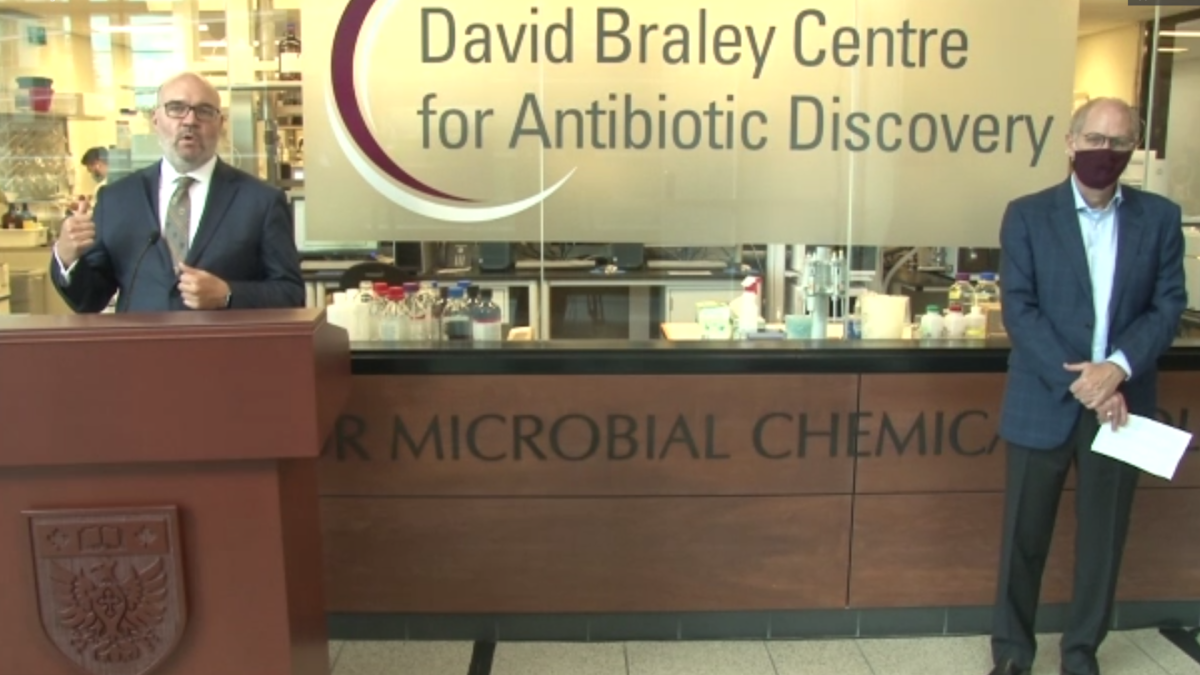Ontario is set to invest $1 million with McMaster University to create a library for its chief anti-microbial lab to educate scientists that don’t specialize in infectious diseases.

The Canadian Compound Library for Antibiotic Discovery will be a chemical library that will support education on antibiotics for researchers and clinicians across the province.
“This research is going to help develop guidelines that can be used by researchers that are going to accelerate antibiotic drug discoveries, development and create a might anti-microbial chemical library,” said the minister of colleges and universities Ross Romano.
The minister revealed the contribution virtually to staff at the David Bradley Center for Antibiotic Discovery on Thursday afternoon.
In January, the World Health Organization (WHO) said two new reports revealed “a weak pipeline” for antibiotic agents. The agency said several new products in development are expected to bring little benefit over existing treatments and target few of the most critical resistant bacteria.

Get daily National news
Dr. Gerry Wright, director of the Michael G. DeGroote Institute for Infectious Disease, said a problem for drug science in Ontario is that there are few libraries designed for the study of infectious diseases.
Wright says the money will help in two ways: the development of online educational programs to retrain researchers towards infectious disease problems and establishing a new chemical library.
“What we’re going to be able to do with this investment is build a library of chemicals,” said Wright.
“So let’s think of it as a collection of chemicals that don’t exist right now, these things are now going to be developed rationally to directly tackle infectious organisms.”











Comments
Want to discuss? Please read our Commenting Policy first.